Best Voice Recorder Android Apps: Free & Paid Picks
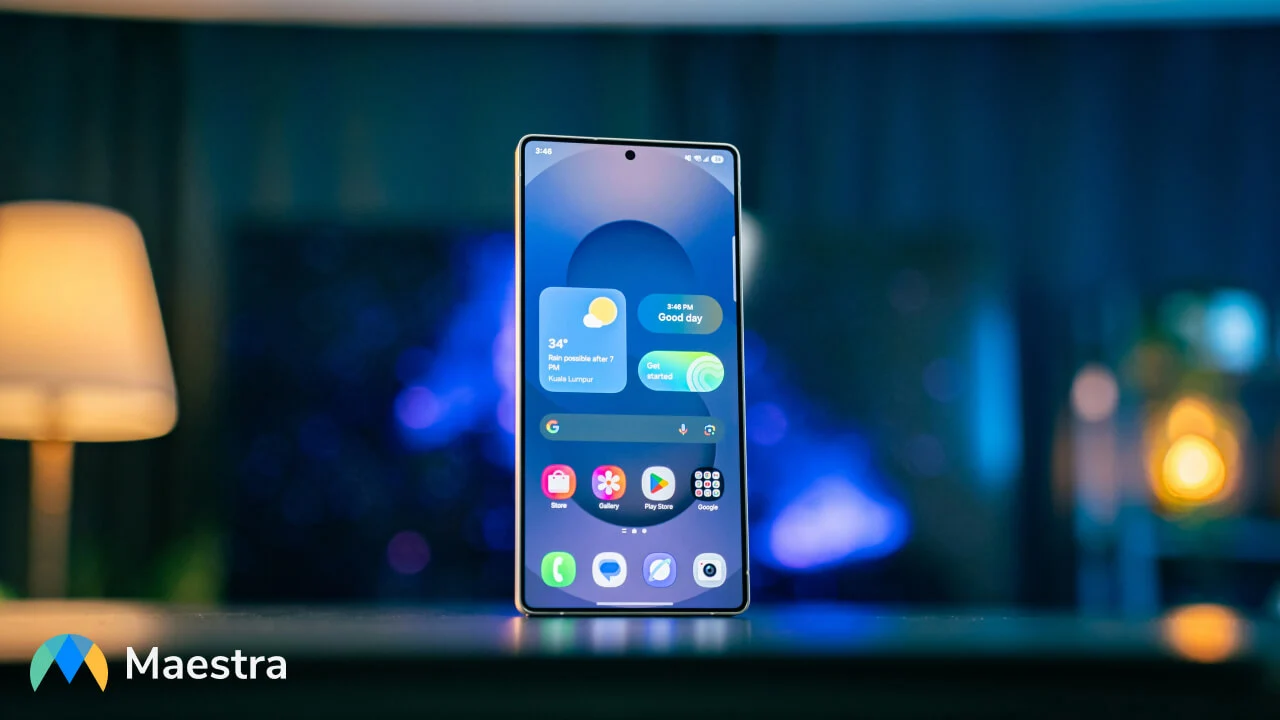
Finding the right voice recorder app can make a big difference, whether you're a researcher recording interviews, a student capturing lectures, or a content creator organizing ideas on the go. As a content writer, I often rely on these apps to revisit conversations without missing important details. That personal need led me to explore the best Android voice recorder apps available today; tools that balance reliability, ease of use, and audio quality.
This blog will cover:
- The best Android voice recorder apps and what makes each one stand out
- The essential criteria to look for when choosing a voice recorder Android app
- Best practices for recording high-quality audio on Android
- Answers to frequently asked questions about Android voice recording
Let's delve in.
Best Android Voice Recorder Apps
With so many options on the Play Store, choosing the right voice recorder can feel overwhelming. To make things easier, I tested a variety of Android voice recorder apps and compared their standout features, best use cases, pros, cons, and pricing.
| Voice Recorder App | Key distinctive feature | Best for | Pricing |
| Easy Voice Recorder | Very beginner-friendly | Casual users or students | Free version available; Pro upgrade $4.99 (one-time purchase) |
| Smart Voice Recorder | Automatic silence skipping | Educators and students | Free to use; optional in-app purchases $1.99–$3.99 |
| Dolby On | Dolby audio enhancement for high-quality sound | Musicians, podcasts, creators | Completely free, no in-app purchases |
| Voice Recorder & Audio Editor | Built-in editing tools | Writers, interviewers, students | Free with ads; in-app purchases available ($2.99–$4.99) |
| ASR Voice Recorder | Wide format support | Power users | Free with ads; Pro upgrade $3.99 (one-time purchase) |
| RecForge II – Audio Recorder | Deep customization | Musicians, podcasters, advanced users | Free version; Pro upgrade $3.99 (one-time purchase) |
| Samsung Voice Recorder | Interview with dual-mic setup | Samsung phone users | Free and pre-installed on Samsung Galaxy devices (not available for other phones) |
| Otter AI | Real-time transcription with AI summaries | Professionals, journalists, teams | Free Basic plan; Pro $8.33/month billed annually; Business $20/user/month; Enterprise custom pricing |
1. Easy Voice Recorder
Easy Voice Recorder is a clean, intuitive audio recording app built for simplicity. Its straightforward layout makes it accessible to beginners and busy users.
Standout feature: I personally loved how quick it is to start recording: just one tap and you're capturing audio without any fuss.
Pros
- Beginner-friendly, minimal setup required
- Supports external microphones for better sound (available in Pro version)
- Works great for both short notes and long sessions (like lectures)
- Cloud integration with Google Drive and Dropbox (available in Pro version)
- Widgets and shortcuts for instant recording
Cons
- Free version is limited in formats and features
- Editing options are very basic
Pricing: Free version available. Pro upgrade is a one-time $4.99 purchase.
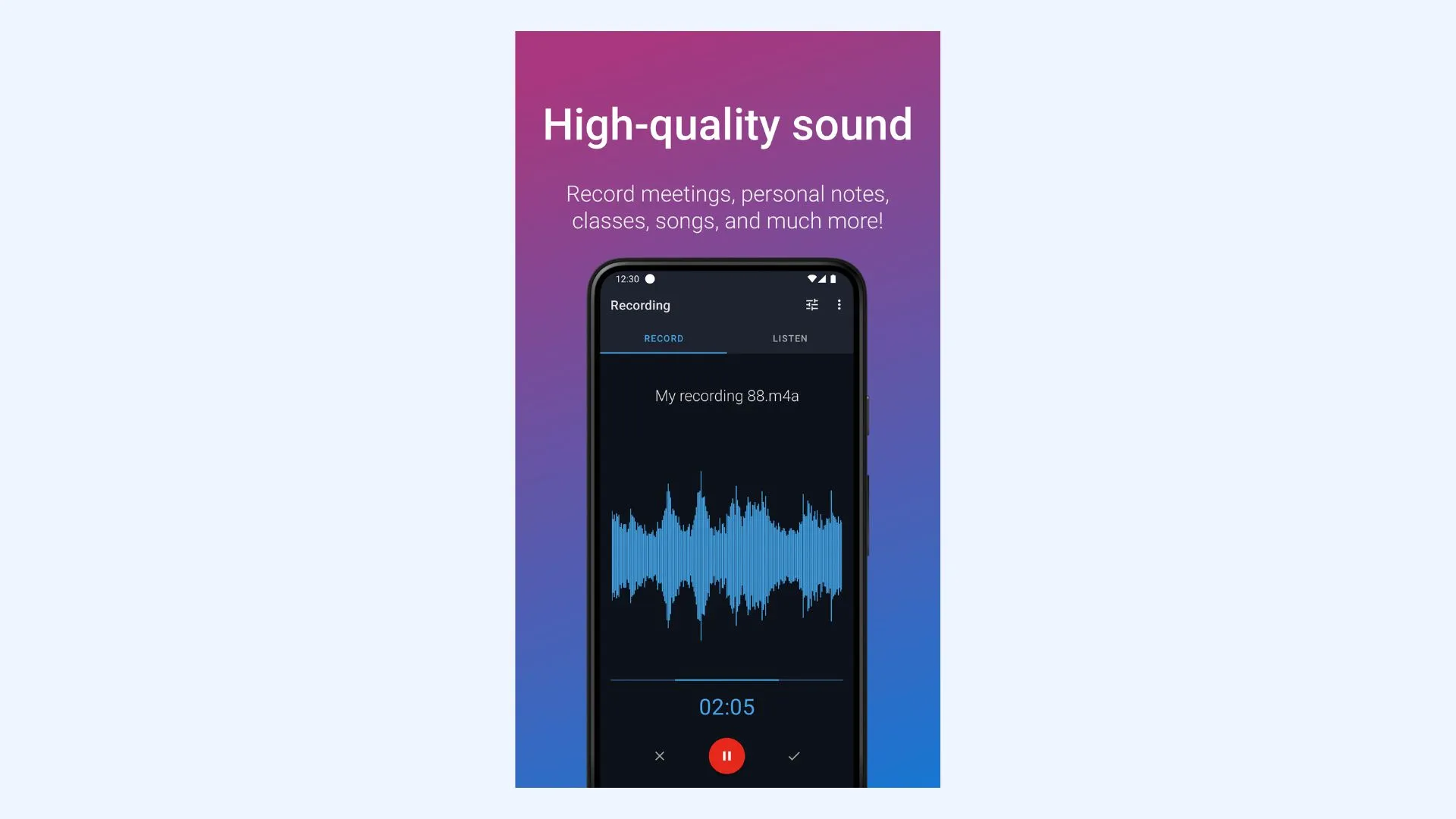
2. Smart Voice Recorder
Smart Voice Recorder has been praised as one of the best voice recording apps for Android thanks to its focus on long-form recording. It's especially popular among students and professionals who need to capture extended sessions like lectures and interviews.
Standout feature: Automatic silence skipping, which pauses during quiet moments to save storage and keep recordings focused.
Pros
- Optimized for long recordings such as lectures, speeches, or meetings
- Silence detection
- Live audio spectrum analyzer that provides a visual representation of sound levels
- Low battery consumption
- Simple interface
Cons
- Lacks advanced editing tools
- Simpler design compared to newer apps
Pricing: Free to use with optional in-app purchases; most core features are available at no cost.
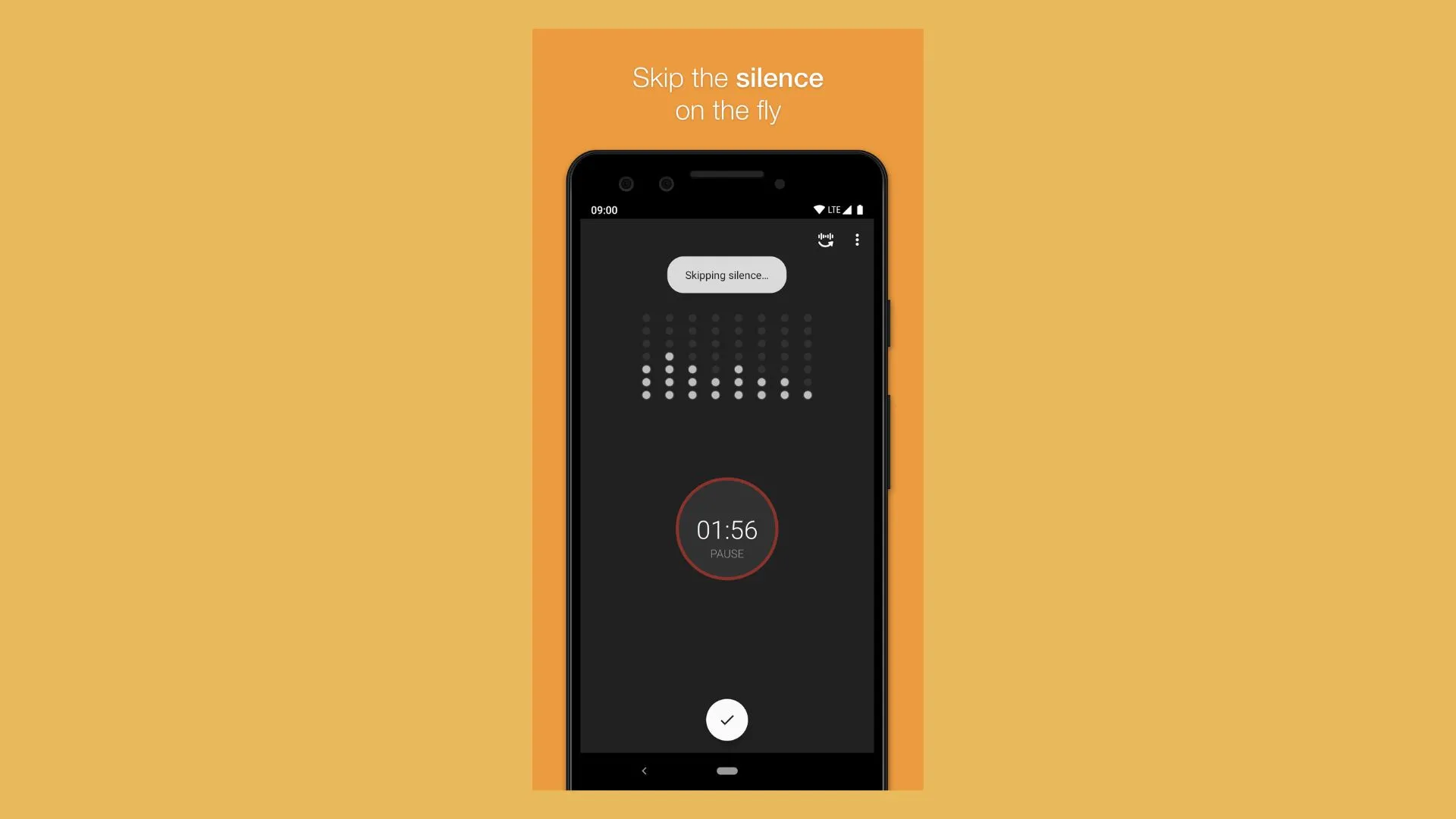
3. Dolby On
Dolby On transforms your Android device into a mini recording studio, delivering rich and polished audio without extra equipment. Unlike many simple recorders, it’s tailored for creators who want their voice or music to sound professional right away.
Standout feature: Real-time audio enhancement, including noise reduction, tone balance, and even 24-bit recording.
Pros
- Cutting-edge Dolby audio technology
- Automatic audio optimization
- Supports music recording with effects like reverb and EQ
- Easy sharing to platforms like SoundCloud and social media
- Completely free with no hidden paywalls
Cons
- May be overkill for simple voice notes or casual users
- Lacks advanced organizational features for managing many recordings
Pricing: 100% free to use with no in-app purchases.
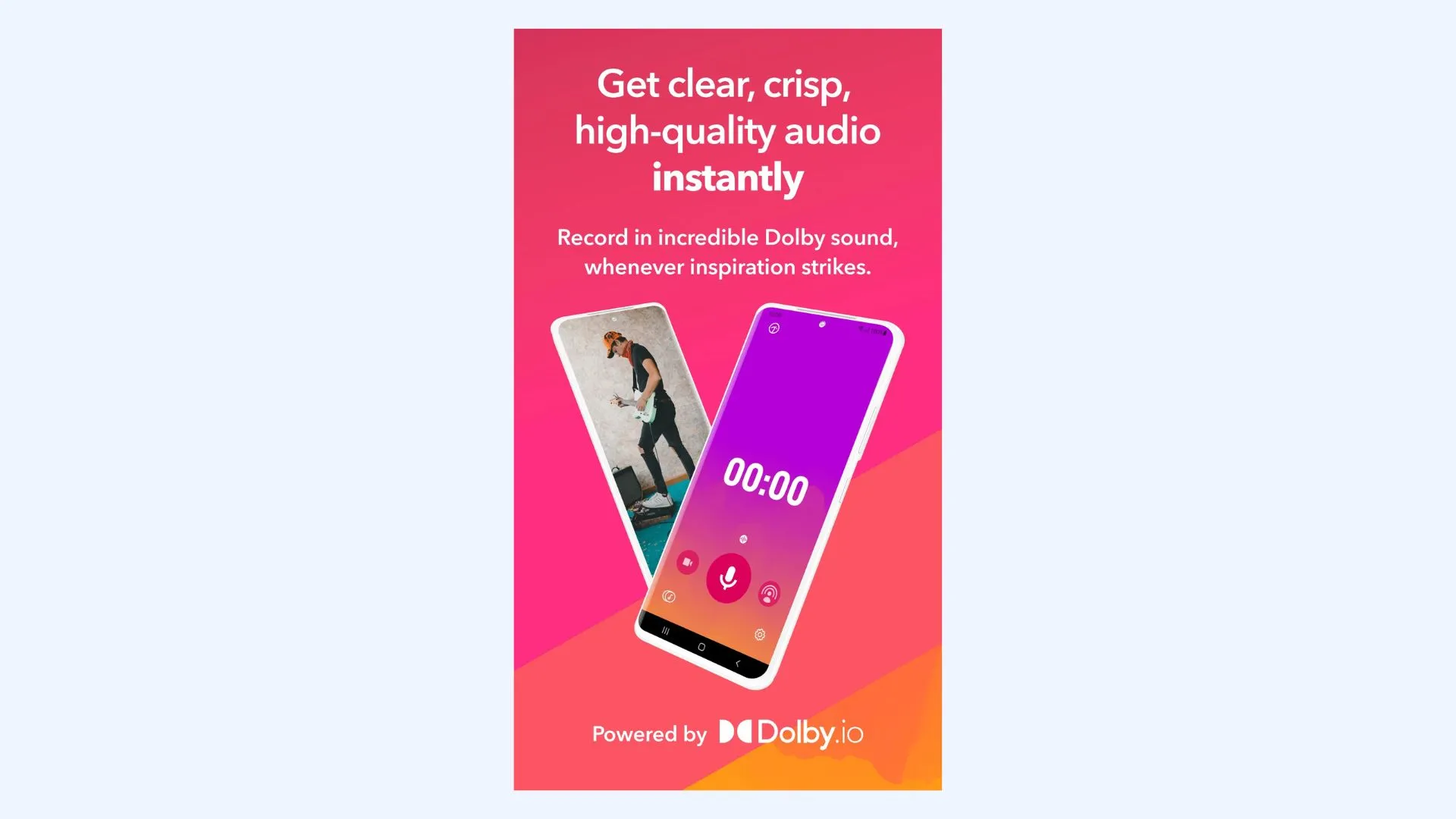
4. Voice Recorder & Audio Editor by j labs
I found Voice Recorder & Audio Editor by j labs really handy because it saved me from jumping between multiple apps. Not only could I record quickly, but I could also trim or tweak the audio right afterward, meaning I could refine recordings immediately after capturing them.
Standout feature: Built-in editing features for trimming, merging, and applying effects.
Pros
- All-in-one solution for recording and editing
- Simple interface that's beginner-friendly
- Unlimited recording time (only limited by device storage)
- Playback speed control for reviewing notes or interviews faster
- Supports multiple file formats for saving recordings
Cons
- Editing capabilities are limited compared to dedicated editors
- User interface can feel less polished than premium alternatives
Pricing: Free version available with ads; offers in-app purchases to remove ads and unlock additional features.
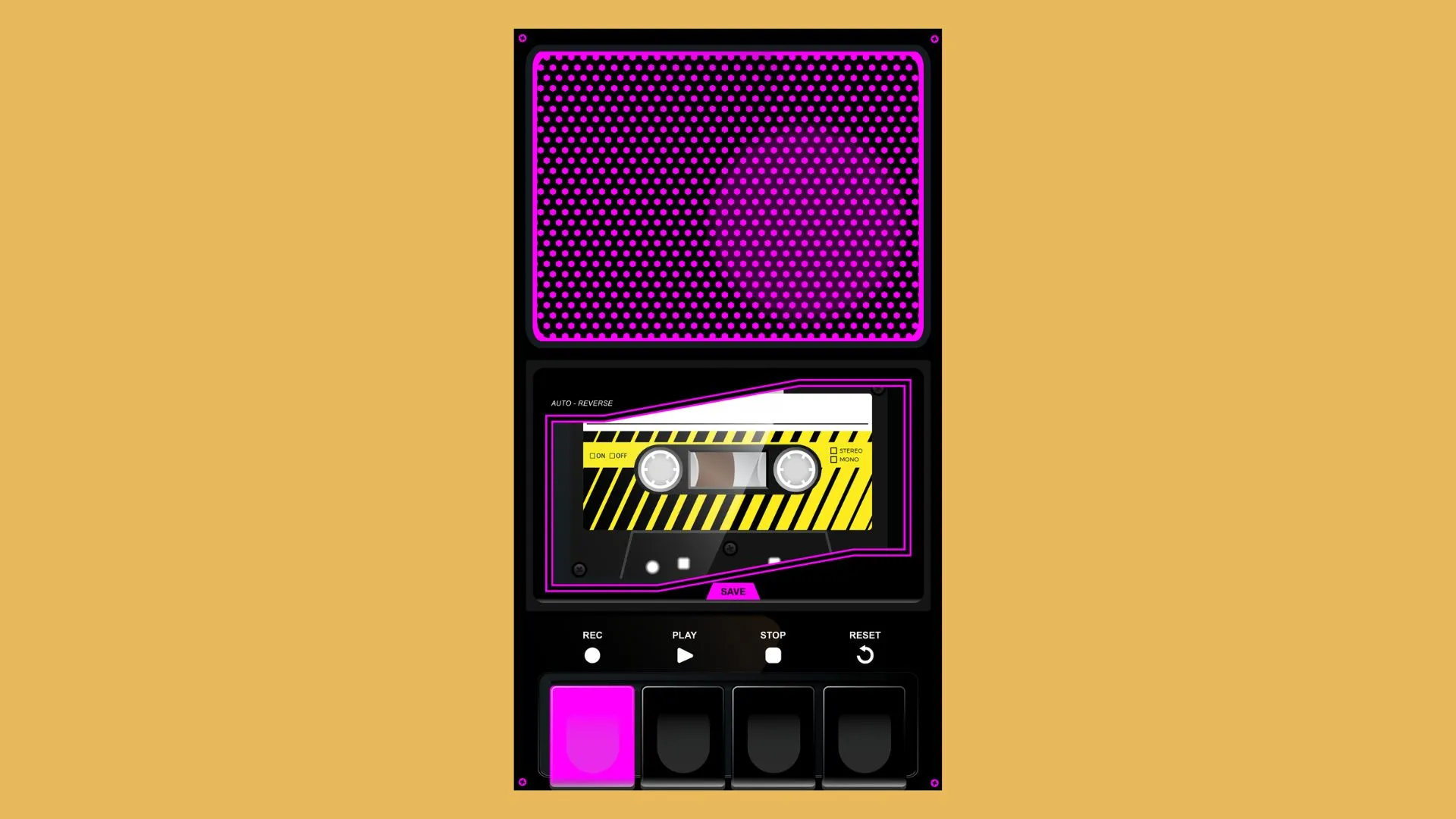
5. ASR Voice Recorder
ASR Voice Recorder stood out to me because of how versatile it is. Whether I wanted a quick MP3 for sharing or a lossless FLAC for higher quality, it gave me the flexibility to choose.
Standout feature: Wide format support (MP3, WAV, FLAC, OGG, M4A, and more) combined with cloud backup options like Google Drive, Dropbox, and OneDrive.
Pros
- Playback speed control for reviewing recordings faster or slower
- Silence skipping to make long recordings more efficient
- Bookmarking feature for marking key moments in recordings
- Widget support for one-tap access on the home screen
- Free with many features available out of the box
Cons
- Ads in the free version can feel intrusive
- Interface looks a bit cluttered
Pricing: Free version available with ads; Pro upgrade available as a one-time purchase.
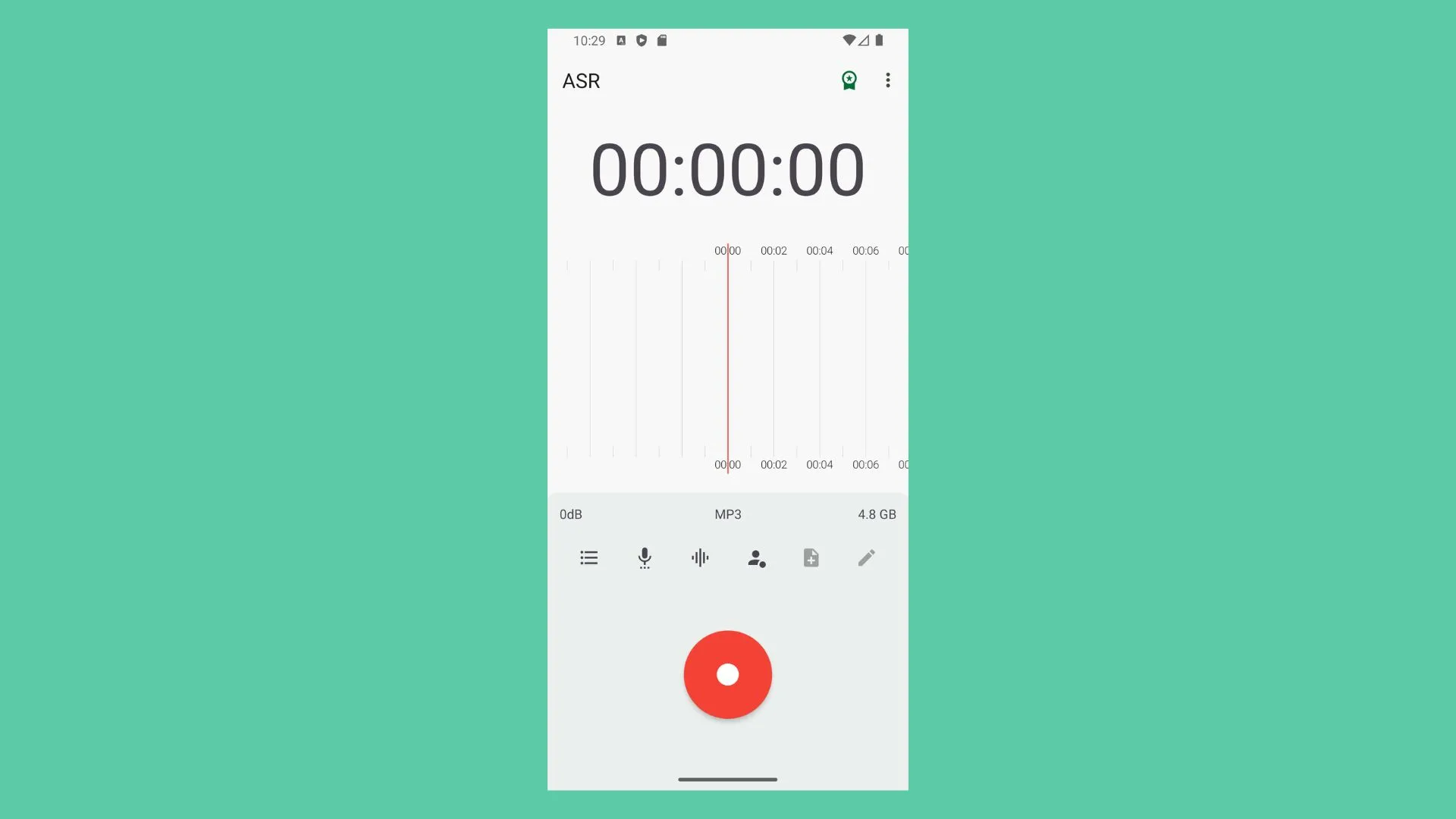
6. RecForge II - Audio Recorder
RecForge II is one of the most powerful Android voice recorders I’ve tested. I found it especially useful when I needed full control over how recordings were captured, from adjusting bitrates to scheduling recordings in advance.
Standout feature: Deep customization options, including codec selection, adjustable sample rates, and even scheduled recordings.
Pros
- Full control over codecs, sample rates, and bitrates
- Supports multiple audio file formats (MP3, WAV, OGG, etc.)
- Scheduling lets you set recordings to start automatically
- External mic support
- Export directly to cloud services for easy sharing
Cons
- Interface can feel complex and intimidating for beginners
- More battery-intensive than lightweight recorders
Pricing: Pro upgrade costs $3.99 for one-time purchase.
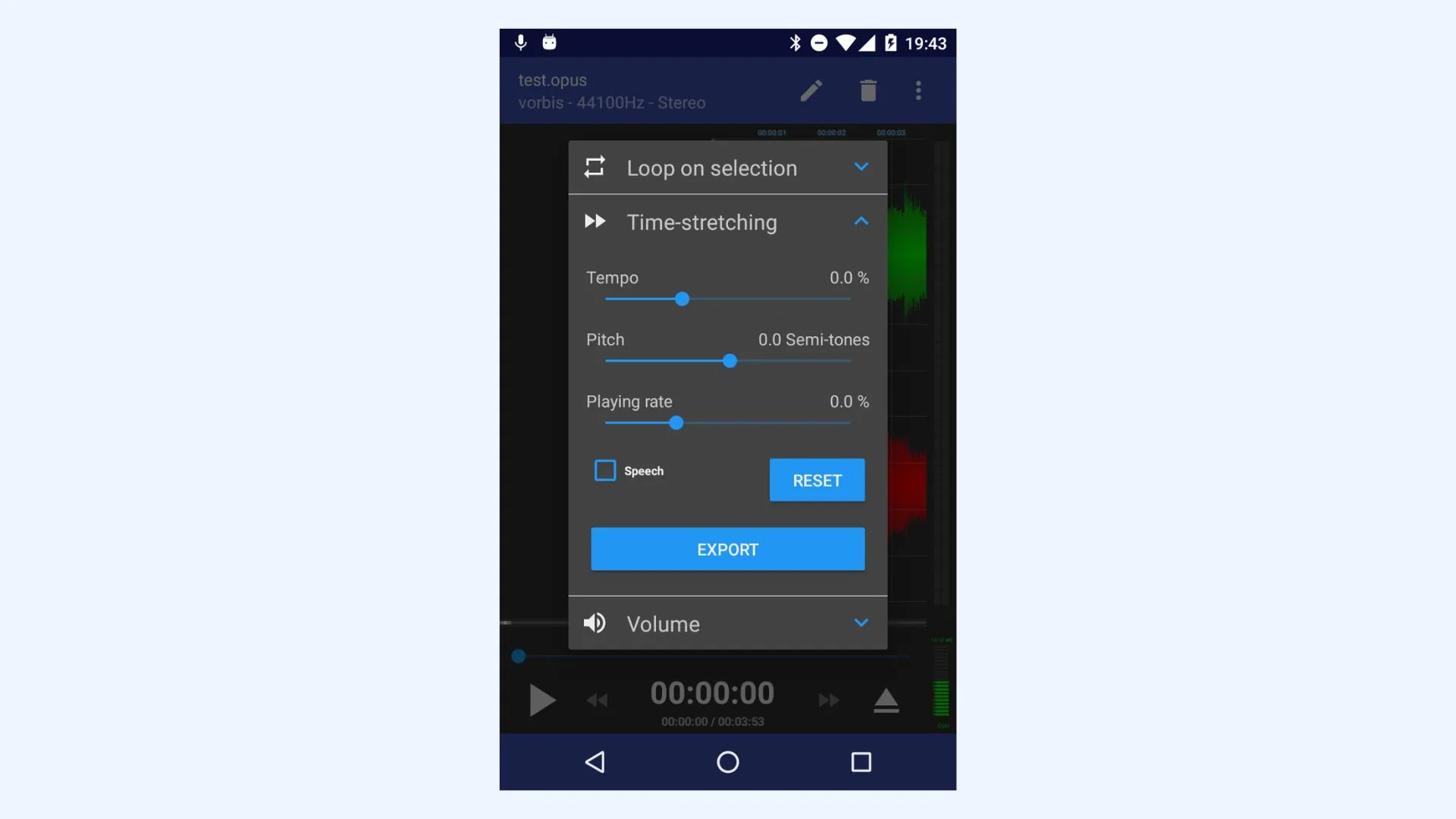
7. Samsung Voice Recorder
Samsung Voice Recorder comes pre-installed on most Samsung phones. Unlike many generic apps, it’s tailored to the device, which makes it especially reliable for day-to-day use.
Standout feature: “Interview mode,” which uses both the front and rear microphones to capture two voices separately and improve clarity during conversations.
Pros
- Speech-to-text transcription and summarization (on supported devices)
- Bookmark feature for marking important moments in real time
- Background recording while multitasking on your phone
- Clean, minimal interface
- Optimized for Samsung hardware, ensuring strong performance
Cons
- Only available on Samsung devices
- No advanced editing features
Pricing: Free and pre-installed on most Samsung Galaxy devices.
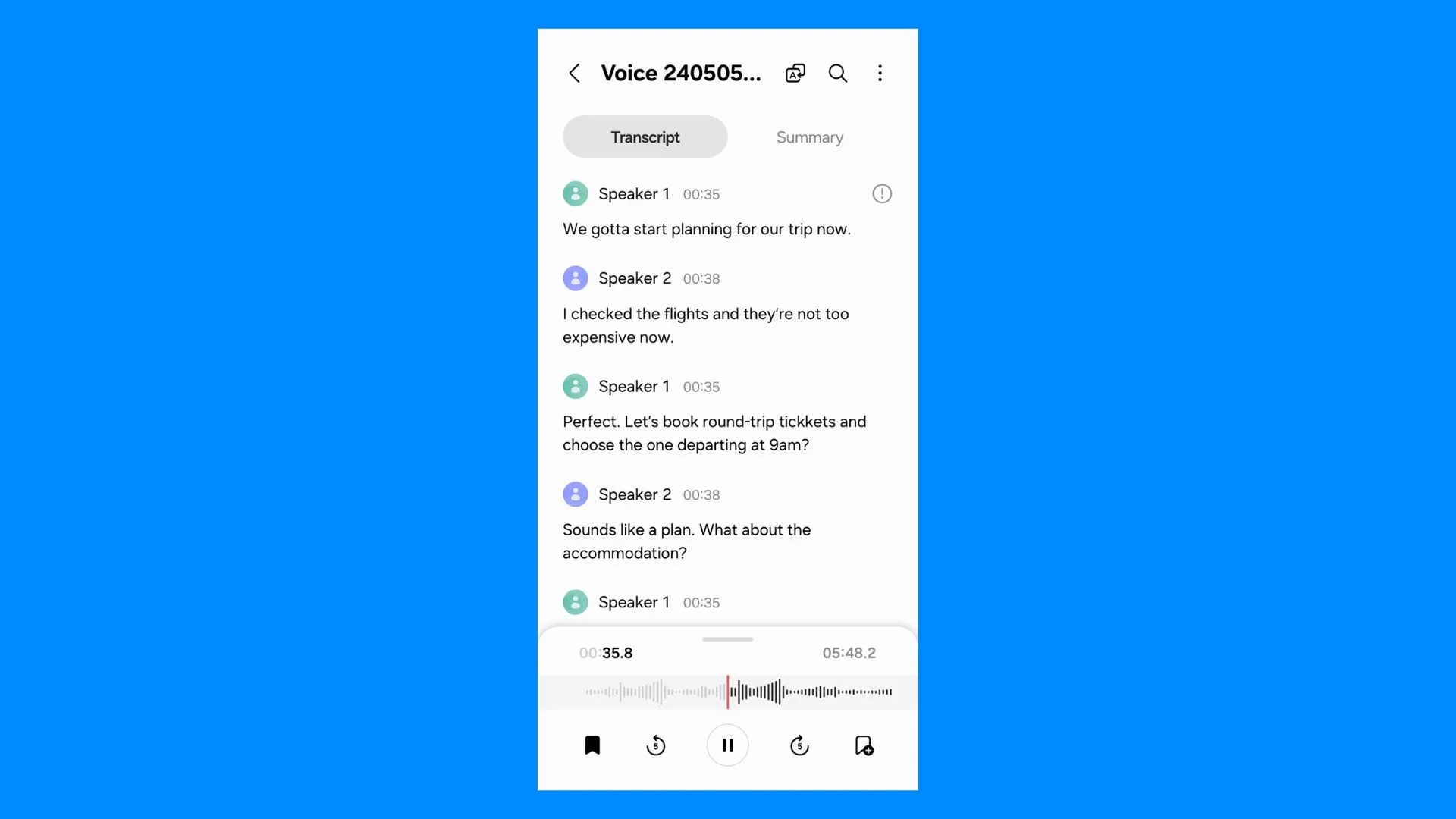
8. Otter AI
Otter AI is different from traditional voice recorders as it not only records audio but also transcribes it in real time. This makes it especially valuable for meetings, interviews, and lectures where having searchable notes is just as important as keeping the audio.
Standout feature: Real-time transcription with speaker identification and AI-generated summaries.
Pros
- Live transcription synced with audio
- Searchable transcripts with keyword highlights
- Cloud sync and cross-platform support (web, mobile, desktop)
- Collaboration tools for sharing and editing notes
- Supports English, Spanish, and French
Cons
- Accuracy can vary in noisy environments
- Best features require a paid plan
Pricing: Otter AI offers a Basic free plan that includes 300 minutes per month with a 30-minute limit per recording. Pro plans start at $8.33/month billed annually, with Business and Enterprise options available for teams.
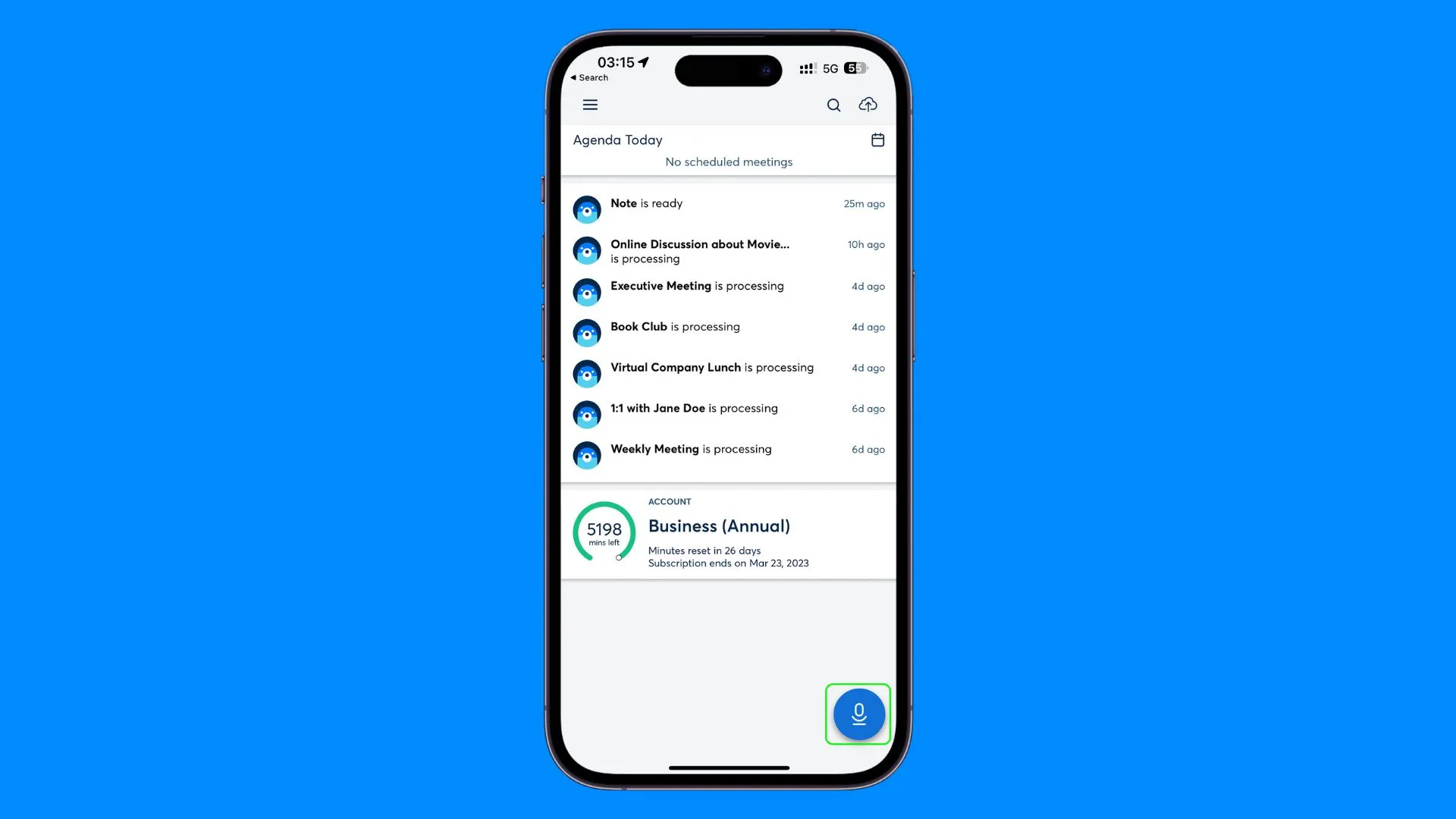
💡 Tip: If you need to transcribe voice memos in languages other than English, French, and Spanish, you can use Maestra's audio-to-text converter, which supports over 125 languages.
How to Choose the Best Voice Recorder App for Android
No matter your use case or recording style, there are certain criteria you should always look for in a voice recorder app. Keeping these factors in mind will help you choose a tool that not only records well but also fits seamlessly into your workflow.
Recording Quality
The most important factor in any voice recorder app is the ability to capture clear, reliable audio. Look for an app that offers one-tap functionality so you can start recording quickly without getting lost in menus.
Ease of Use
A good voice recorder app should be simple enough to use without breaking your focus. Complicated menus or hidden controls can slow you down at the worst moment.
Store and File Management
Even the best recordings can become frustrating if they’re hard to find later. A reliable app should let you easily rename, organize, and search your files so nothing gets lost in a long list of untitled tracks.

Battery and Resource Efficiency
Recording apps should be optimized to use as little power and storage as possible. This is especially important if you want to record long sessions like lectures or interviews.
Cloud Integration
Cloud syncing keeps your files safe and makes it easy to access them across multiple devices. Apps that connect to services like Google Drive or Dropbox are especially useful for professionals who record often.
7 Tips for High-Quality Audio Recordings on Android
Even with the best apps, the way you record plays a huge role in the final quality. Following a few simple habits will help you get clearer audio, stay organized, and make sure your recordings are always ready when you need them.
- Minimize background noise. Find a quiet environment before you hit record, as background sounds can make even the best audio hard to understand.
- Use an external microphone if possible. External mics generally capture cleaner, more focused audio than your phone’s built-in mic.
- Do a short test recording first. This helps you check volume levels, and avoid surprises like muffled sound or accidental silence.
- Leverage airplane mode during recordings. Notifications or calls can interrupt and ruin a recording.
- Find the perfect mic placement. Holding your phone or mic too close can distort sound, while too far can make it hard to hear.
- Export in the right format. Choose MP3 for smaller, shareable files or WAV/FLAC for higher quality.
- Back up important recordings. Store your files in the cloud or on a separate device to keep them safe.

Conclusion
Finding the right voice recorder app for Android comes down to balancing your needs with the features each tool provides. Whether you want a simple app for quick notes, advanced customization for professional use, or AI-powered transcription, there's an option that fits.
No matter which voice recorder Android app you choose, you’ll be better equipped to capture ideas, preserve conversations, and stay organized. That peace of mind makes finding the right tool even more worthwhile.
Frequently Asked Questions
What is the best free voice recorder app for Android?
There isn’t a single best free voice recorder app for Android since each has strengths. If you’re looking for something easy to use right away, Easy Voice Recorder is one of the best options. If you're looking for an advanced free sound recorder app, Dolby On stands out with studio-quality enhancements.
Where is the voice recorder on Android?
You can usually find the voice recorder on your Android in the apps list or utilities folder. The app may appear under different names, such as “Recorder” or “Voice Memos,” depending on your phone brand. If you still can’t find it, try typing “recorder” in the search bar of your apps screen.
How can I record voice memos on Android?
To record a voice memo on Android, open your phone’s built-in Voice Recorder or Recorder app. Tap the record button to start and the stop button to finish, then your memo will be automatically saved. You can then replay, rename, or share the memo right from the app.
How can I record phone calls on Android?
On many Android phones, you can open the Phone app, tap the More or Options button during a call, and select Record if the feature is supported. Recordings are usually saved in the internal storage under Call Recordings. If your phone doesn’t support this, you’ll need a third-party app, but availability may vary by region.
How long can I record audio on Android?
On Android, you can typically record for as long as your device has free storage. For many users, this means recording sessions that last hours without interruption. A few apps, however, may impose limits like 30 minutes or 1 hour per file.
Where are voice recorder files stored on Android?
Most Android phones save voice recordings in the Internal Storage > Recordings or Internal Storage > Sounds folder. On Samsung devices, you’ll often find them in Internal Storage > Voice Recorder. Some third-party apps use their own folder with the app’s name.
Do Android voice recorder apps work offline?
Yes, most Android voice recorder apps work completely offline because they only need your phone’s microphone to capture audio. You can record, save, and replay files without an internet connection. However, features like cloud backup or transcription usually require going online.
